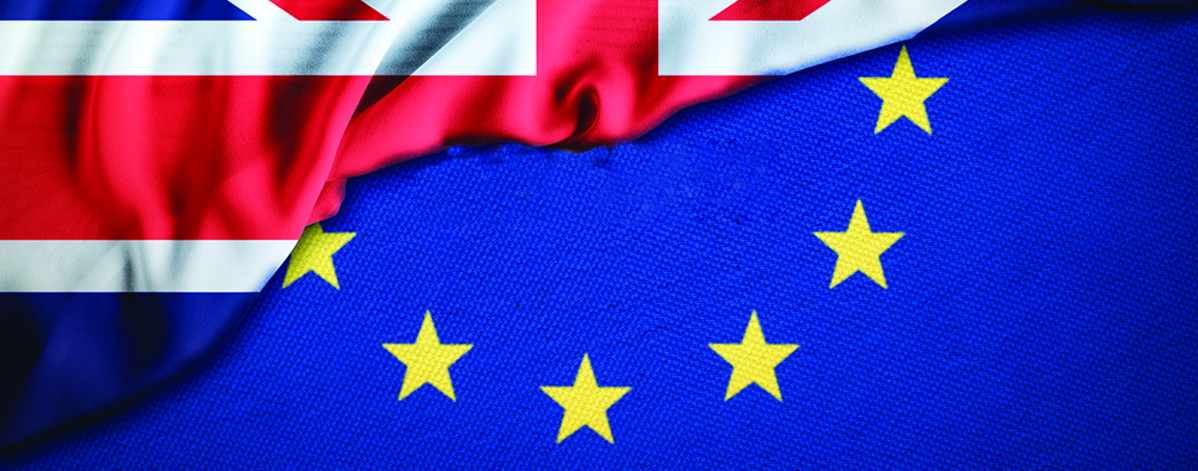
Bilateral TRADE
From foes to friends
US and Vietnam, once adversaries, surprised many by signing trade deals worth billions of dollars. US President Donald Trump announced 13 new transactions, worth $8 billion, with the South-East Asian nation. These deals, the White House said, include $3 billion worth of US-produced content that is expected to support at least 23,000 American jobs. This deal was signed during the recent meet between Vietnamese Prime Minister Nguyen Xuan Phuc and US President Donald Trump in Washington. The duo also discussed various means to increase bilateral trade between the two nations, especially considering America’s growing trade deficit with Vietnam. The North American nation’s increasing imports of electronics products, footwear, apparel, furniture, etc., from Vietnam over the years has resulted in an yawning trade gap. But, will the Vietnamese develop a taste for American goods? Only time will tell.
BREXIT
Oh, snap!
The British proved to be as unpredictable as their weather when they shocked their Prime Minister, Theresa May, in the snap poll that she had called. May, expecting a sunny day, had her parade rained on.
The result of the election was shocking as the Conservative Party under May’s leadership won a total of only 317 seats, nine seats short of the 326 seats required for a majority. As soon as the results were announced, the pound sterling, which had already seen a decline post the June 2016 referendum, dropped a further 2.5% against the US dollar. The immediate question on everyone’s mind was about May’s next move. Many speculated that Britain would see a change in leadership and that this loss of majority by the Conservative Party could result in the Jeremy Corbyn-led Labour Party stepping forward. This change could bring in a very different trade policy to the forefront. Corbyn has been critical of May’s support of US president Donald J. Trump.
Dismissing calls to quit, May, in an overnight move, announced a deal to form a coalition minority government with the Democratic Unionist’s Party. While currently the Conservative Party and its voters are heaving a sigh of relief, it will be interesting to see how this impacts May’s stance (and relations with leaders of partner countries) on trade issues as well as the Brexit negotiations, and most importantly till when she remains at the helm. While May has promised economic and political stability, with the latest turn of events, the future of EU, UK and Brexit still hangs in balance.
One Belt One Road
Full steam ahead
China’s ambitious OBOR – One Belt One Road – project is moving full steam ahead, with the latest addition being a $3.2 billion railway line running between Nairobi and Port of Mobasa in Kenya. Around 90% of the line was funded by the EXIM Bank of China and will be maintained by the China Road and Bridges Corporation. The line is expected to be further expanded and connect Uganda, Rwanda, Burundi, Democratic Republic of Congo, South Sudan and Ethiopia with the Port of Mobasa. Compared to the previous line, built during the British Empire (running between Kampala, the capital of Uganda and Mobasa Port in Kenya), the new line is expected to reduce the travel time for passengers – from 12 to 4 hours, for a 472-kilometre journey. The project, completed 18 months before its expected completion date, is being touted as a shorter and cheaper route between the two countries. This OBOR initiative aims to reduce the maritime and inland transportation time between China, Europe, Africa and Asia, thus aiding trade amongst them.

Bilateral Trade
Friends in need
With US stepping away from the Paris Climate Agreement, all eyes are now on the power dynamics of a changing world order. China has made a play for the leader’s mantle with regards to climate change and has found a friend in EU.
However, there seems to be trouble in paradise as just two days after their display of climate solidarity, the duo failed to make an announcement related to trade and climate change ties because of the ongoing trade issues.
Rumour has it that the joint statement fell through due to China’s demand for recognition by EU as an “economy driven by market and not by state” – as well as EU seeking a formal agreement on China cutting its production of steel. Even in the past, this has been an issue for both US and EU, who have imposed anti-dumping duties on Chinese steel.
Despite the disagreement, China and EU have committed to continue following the Paris Convention without US.
It’s important to note here that though there has been a 1.24% year-on-year decline in bilateral trade between China and EU in CY2016, China has always been an important sourcing destination for EU.
It’s a known fact that many European leaders have in the past expressed scepticism over closer ties with the Asian powerhouse. However, with the changing world dynamics, it will be interesting to see if the two manage to overcome their differences in the areas of trade and investment to emerge as leaders in a new political and economic order.
Get the latest resources, news and more...
By clicking "sign up" you agree to receive emails from The Dollar Business and accept our web terms of use and privacy and cookie policy.
Copyright @2026 The Dollar Business. All rights reserved.
Your Cookie Controls: This site uses cookies to improve user experience, and may offer tailored advertising and enable social media sharing. Wherever needed by applicable law, we will obtain your consent before we place any cookies on your device that are not strictly necessary for the functioning of our website. By clicking "Accept All Cookies", you agree to our use of cookies and acknowledge that you have read this website's updated Terms & Conditions, Disclaimer, Privacy and other policies, and agree to all of them.

